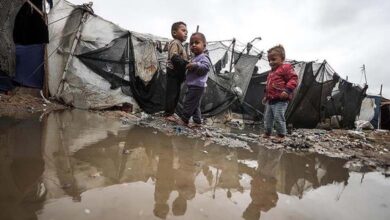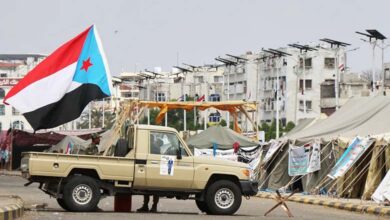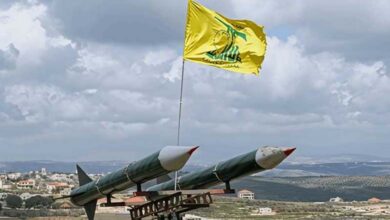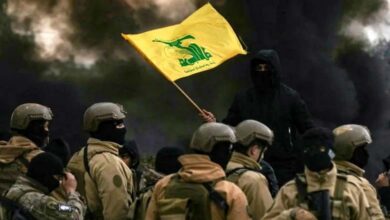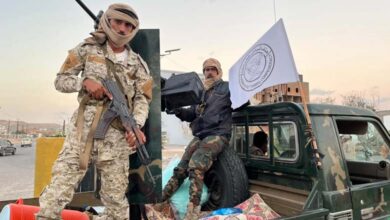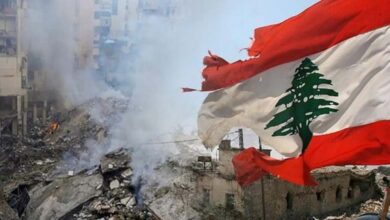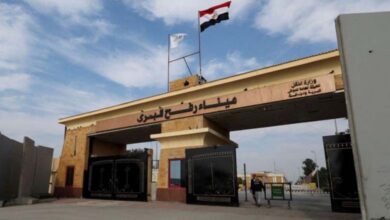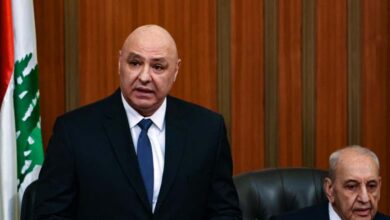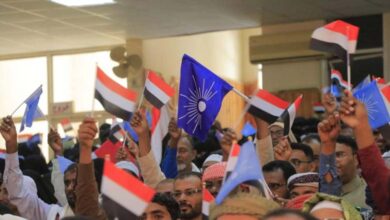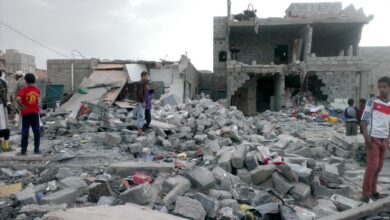Withdrawal of Coalition Forces from Iraq: A Renewed Demand Driven by Iran
Al-Amiri suggests the popular mobilization forces instead of the coalition, "supporting security agencies and preserving iraq's unity and sovereignty"
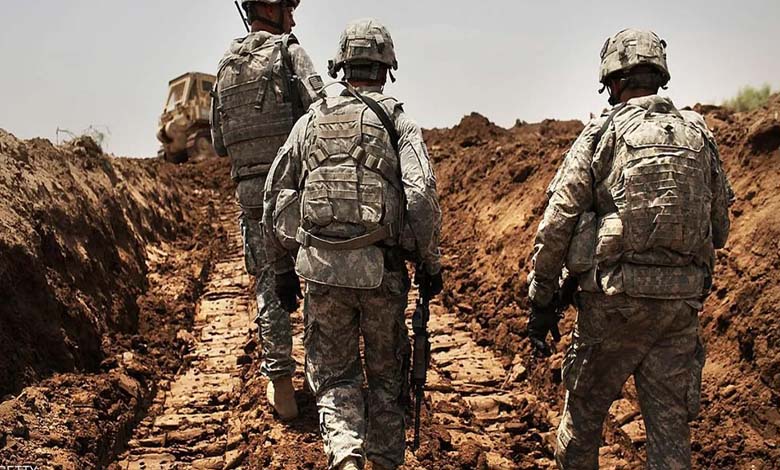
The Iraqi factions loyal to Iran are escalating their confrontation with US forces, despite the awkward position of the government and its attempts to contain the escalation. Hadi al-Amiri, the head of the “We Build” alliance, has renewed his demand to end the presence of the international coalition led by the United States, which opposes ISIS, in the country.
Observers affirm that these demands are not new and are driven by Iran’s reluctance to have foreign forces near its borders. They point out that the war on Gaza provides an opportunity for Iran to pursue its interests through its proxies in Iraq and Syria.
During a speech at the electoral festival of the alliance in Wasit province, al-Amiri stated, “The Popular Mobilization is the support for the security apparatuses, preserving Iraq’s unity and sovereignty,” adding that “the Iraqi army, with the Popular Mobilization and the Federal Police, is capable of defending Iraq.”
These statements are seen as the latest provocation in a series of actions taken by factions against the international coalition. US officials have reported that their interests in Iraq and Syria have been targeted in more than 80 attacks since mid-October, most claimed by the “Islamic Resistance Movement” in Iraq, which includes armed Iraqi factions allied with Iran, “due to Washington’s support for Israel in its war in Gaza.”
The US military participated in an international coalition in the war against ISIS in Iraq between 2014 and 2017. Gradually, its forces were reduced until the announcement of the withdrawal of all combat troops, keeping around 2500 advisors and trainers to assist Iraqi forces in countering terrorism.
The Iraqi government defends the legitimacy of the US military presence in Iraq, emphasizing that the nature of the forces is advisory, not combat.
However, al-Amiri stated, “We do not need the international coalition forces in Iraq, and they must leave immediately,” urging the Iraqi government to end the presence of the international coalition in Iraq and achieve full national sovereignty.
Al-Amiri leads the “We Build” alliance, formed with other Shia forces, known as the Coordinating Framework, to confront the Shia cleric Muqtada al-Sadr following the last legislative elections. They succeeded, with the cooperation of Kurdish and Sunni forces, in forming the government.
Al-Amiri is known for his strong ties with Iran, where he fought alongside Iranian forces against Iraq during the eight-year war between 1980 and 1988. From this perspective, his statements are seen as a reflection of an Iranian decision to resume the battle to expel US forces from Iraq in support of Gaza.
The Iraqi Parliament voted on January 5, 2020, to demand that Baghdad work to expel foreign forces from the country. The decision came two days after the US assassination of Qassem Soleimani, the Iranian Quds Force commander, and Abu Mahdi al-Muhandis, a leader in the Popular Mobilization, near Baghdad Airport.
Two days ago, the Iraqi Hezbollah Brigades threatened to launch more attacks on US forces in the region, indicating that the attacks on American interests last Friday were just the beginning.
Abu Ali al-Askari, the security official in the brigades, said on an online platform on Saturday evening, “Our operations against the American occupation will continue until its last soldier is expelled from the land of Iraq,” confirming that any “foolishness” on their part would face a multiplied response and an expansion of operations.
The Iraqi Hezbollah Brigades possess significant military capabilities and are one of the main factions launching attacks on international coalition forces against ISIS and American interests.
The group did not explicitly claim responsibility for a rare attack on the US embassy in Baghdad last Friday, but the security official said the embassy represents an “advanced operations base for planning military operations and a hub for espionage.”
US Defense Secretary Lloyd Austin, in a phone call with Iraqi Prime Minister Mustafa Al-Kadhimi, condemned the attacks on American interests, specifically mentioning the Hezbollah Brigades and another group, the Al-Nujaba Movement, for targeting American soldiers recently. He emphasized that Washington retains the right to respond.
In a clear challenge to Al-Kadhimi, the Hezbollah Brigades stated that “the cooperation of some members of the security agencies with the American occupier makes them partners in its crimes.”
Iran relies on a large number of militias, including the Iraqi Hezbollah and the Al-Nujaba Movement, in its proxy confrontation with US forces in Iraq and Syria. These militias are funded, organized, and armed by the Iranian Revolutionary Guard, which used them in the past years in wars inside both Syria and Iraq.


